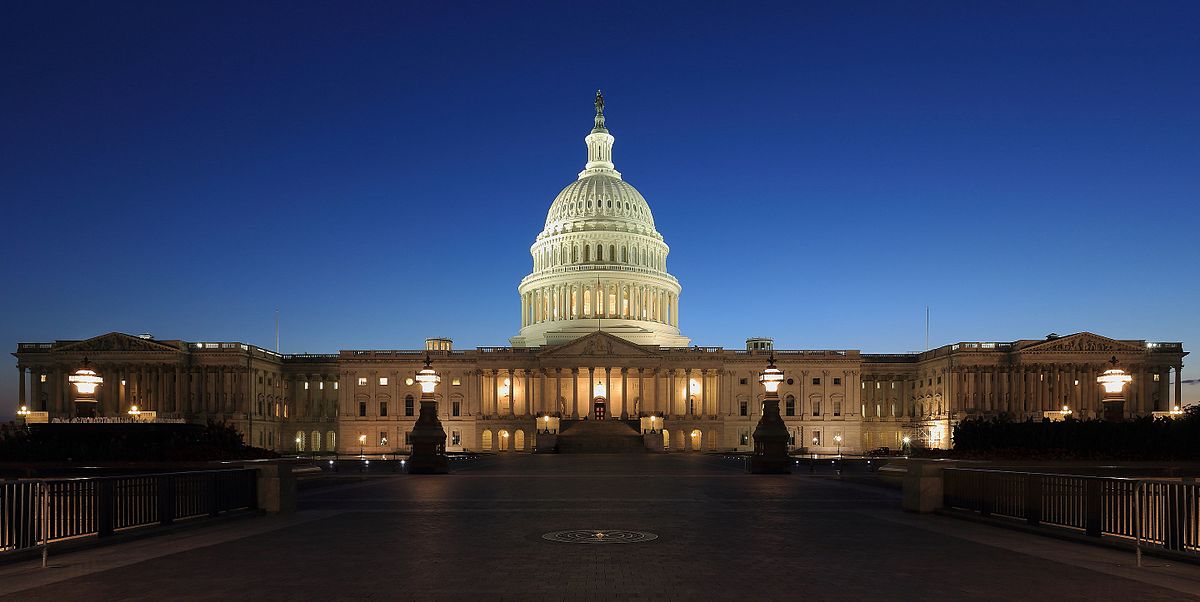The
Four Horsemen of the Apocalypse are described in the last book of the New Testament of the Bible, the Book of Revelation by John of Patmos, at 6:1-8. The chapter tells of a book or scroll in God's right hand that is sealed with
seven seals. The Lamb of God opens the first four of the seven seals, which summons four beings that ride out on white, red, black, and pale horses.
Four Horsemen of the Apocalypse
By Viktor Mikhailovich Vasnetsov - http://lj.rossia.org/users/john_petrov/166993.html, Public Domain, https://commons.wikimedia.org/w/index.php?curid=2649874
While the fourth horseman is specifically named Death, the three first horsemen are merely described in terms of their symbols. The first one has a crown and a bow, the second one wields a sword, and the third carries a scale. Most interpretations of this is that the four horsemen represent conquest, war, famine and death. However, the specifics as to their exact manifestations are widely debated.
My personal interpretation of these symbols are that of man-made catastrophe which takes on four distinct phases. First, there is a grand idea with a saturnistic origin. It contains some mix of superiority, entitlement and the promise of easy riches. Historic examples of this are the Roman empire, Napoleon's empire, Russia under Stalin, and China under Mao. All of these empires went astray due to the ideas they promoted. They started with a widely popular, but greatly flawed idea.
The problem with saturnistic ideas are twofold. They are unsustainable, and they give advantage to some at the expense of others. While the unsustainable aspect can be managed for a prolonged time, the unfair distribution of resources is felt immediately. It is therefore resisted, and there is strife. Rome experienced civil war early in its development. Napoleon's empire emerged from the French revolution. Communist Russia and China both started with civil wars.
In cases where the saturnists win, the two last horsemen arrive at some later stage. The unsustainable aspect of the new order must at some time be rectified. Things must revert to a balance with nature. This is the significance of the scales. What has been out of balance returns to balance, and there is much suffering and sorrow among those who were duped into believing in the unsustainable and flawed logic of the original idea.
Finally, there is death. The idea dies, and its followers face ruin, starvation and in some cases death.
The four first phases of the apocalypse are recurring events. The apocalypse described in the Bible has three subsequent phases, including earthquakes and volcanic eruptions. Nature itself revolts. Only the first four phases are man-made. They are also the only events regularly recurring throughout history.
The dominant saturnistic idea of our times is that of
Keynesian economics. It promises riches to those who go into dept, and many of its proponents promote the idea that war and destruction are engines of wealth creation. Clearly, those being bombed back to the stone ages are not experiencing riches, nor are people deep in debt rich. Also, building bombs instead of refrigerators, cars and houses, does not make us richer, even if the bombs are dropped on others. Yet, despite these obvious flaws in its logic, Keynesian economics is popular and widely believed to work.
Rather than easy riches, Keynesian economics is leading us to ruin, and it appears that we are quite far progressed towards the end. We have had pretty much continuous wars since the introduction of central banking, a key aspect of Keynesian economics. The two first horsemen have already arrived, and we are waiting for the third and fourth to appear. The economy is greatly out of balance. We build all sorts of stuff with little or no value while ignoring basic necessities like agriculture and preparations for years of bad harvests, long predicted to come by climate scientists.
We are at the latter stage of the expansion under the flawed logic of the current saturnistic idea. What will come is the third horseman. Basic necessities will become extremely scarce while goods and services of less importance will remain abundant. We are about to enter a phase of economic collapse. Those with debt, heavily invested in financial papers and technology stocks will discover the price of their false belief. There are no easy riches. Debt does not make us rich and war does not produce prosperity. Those who fail to get their house in order will face the fourth horseman. Ruin and death is on the horizon, and time is running out. The era of Keynesian economics is drawing to an end.




















